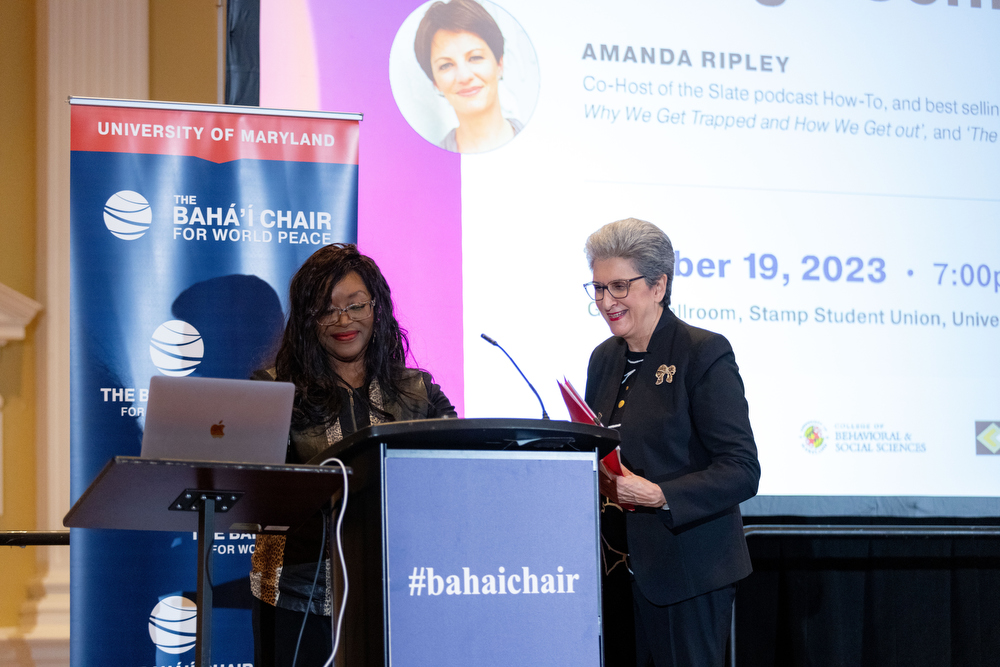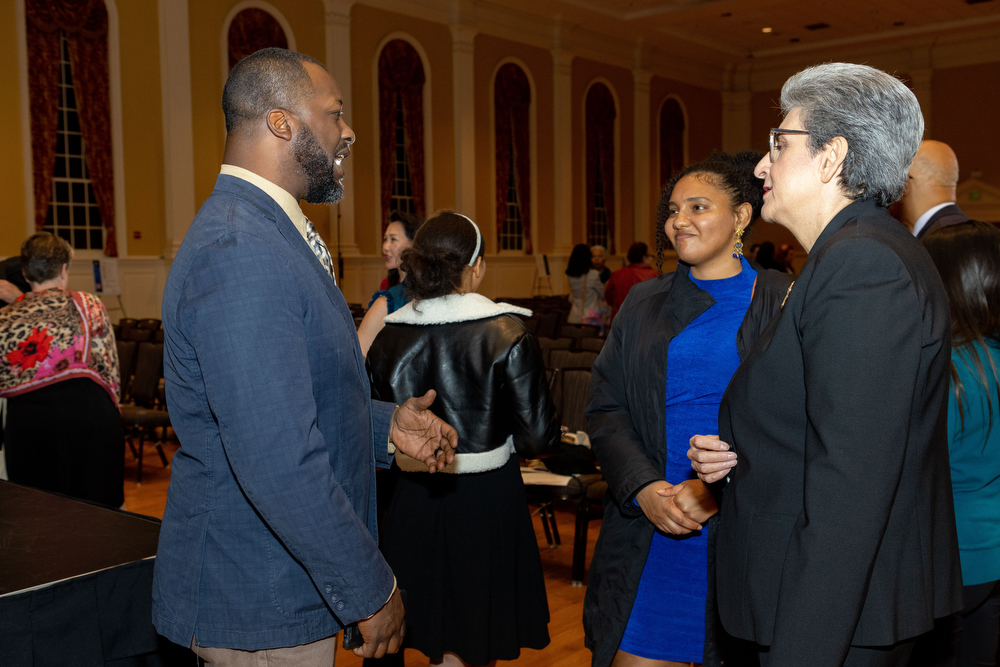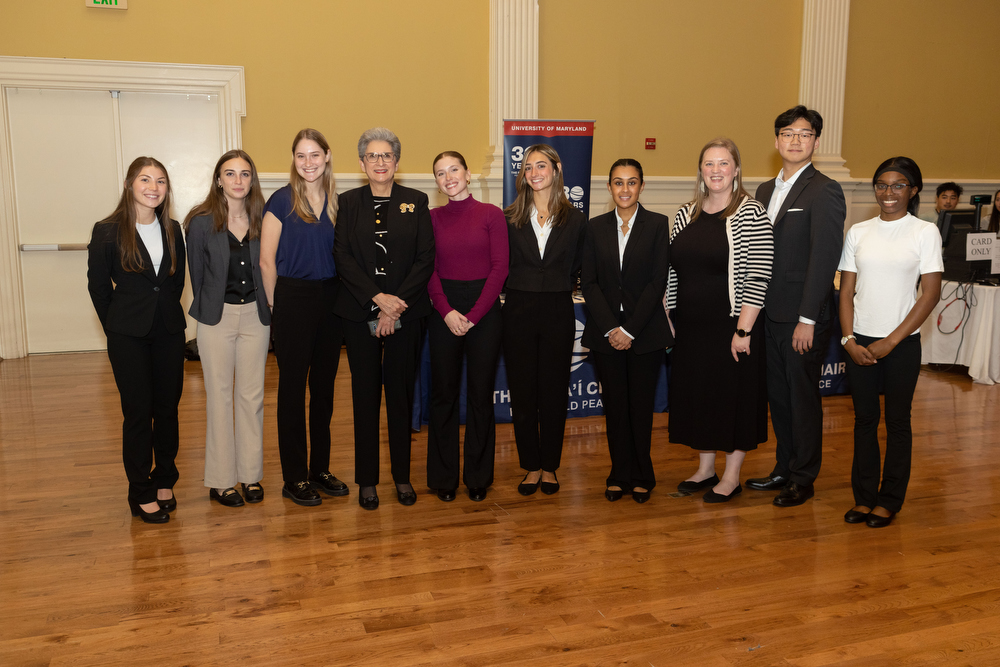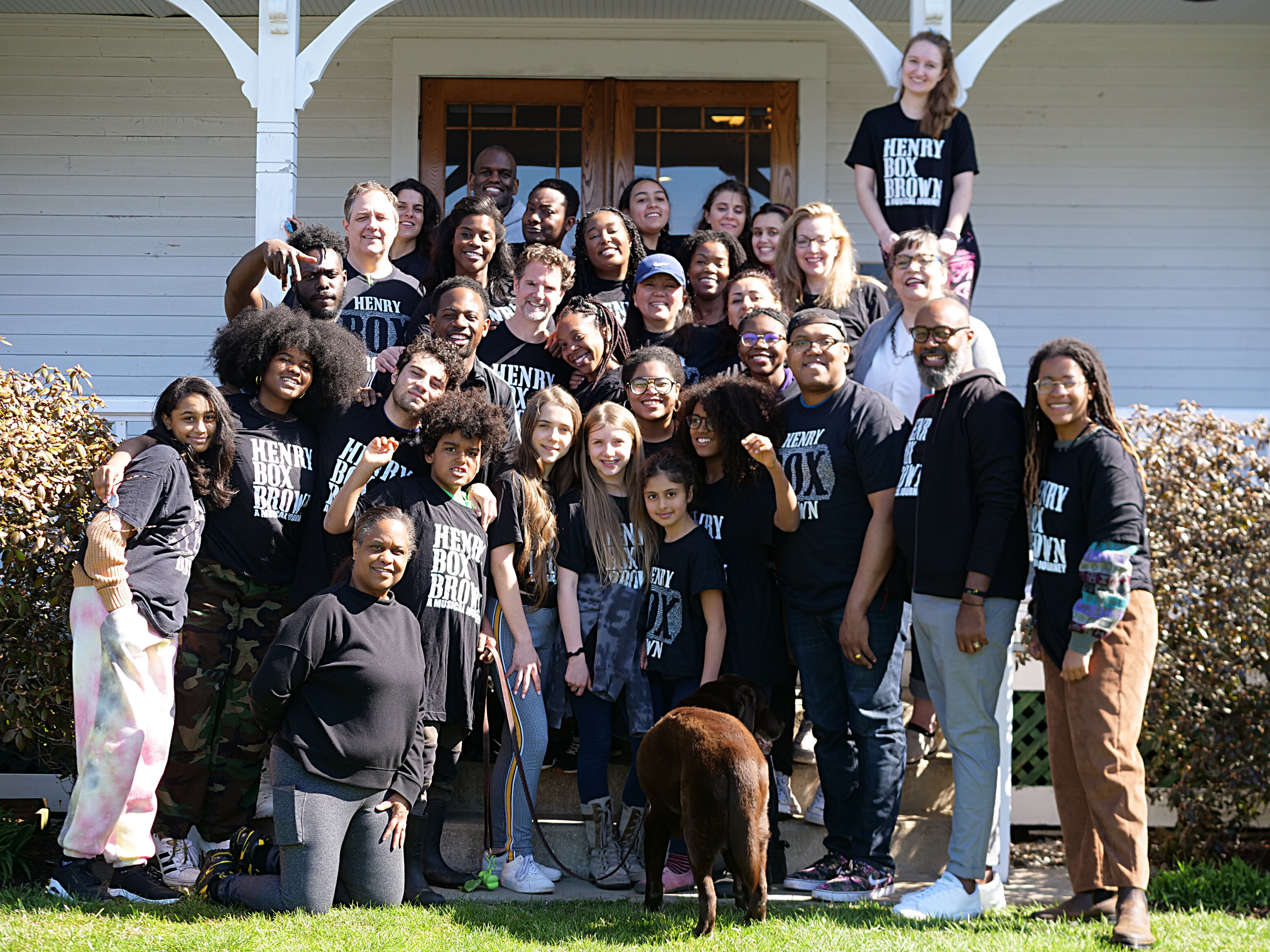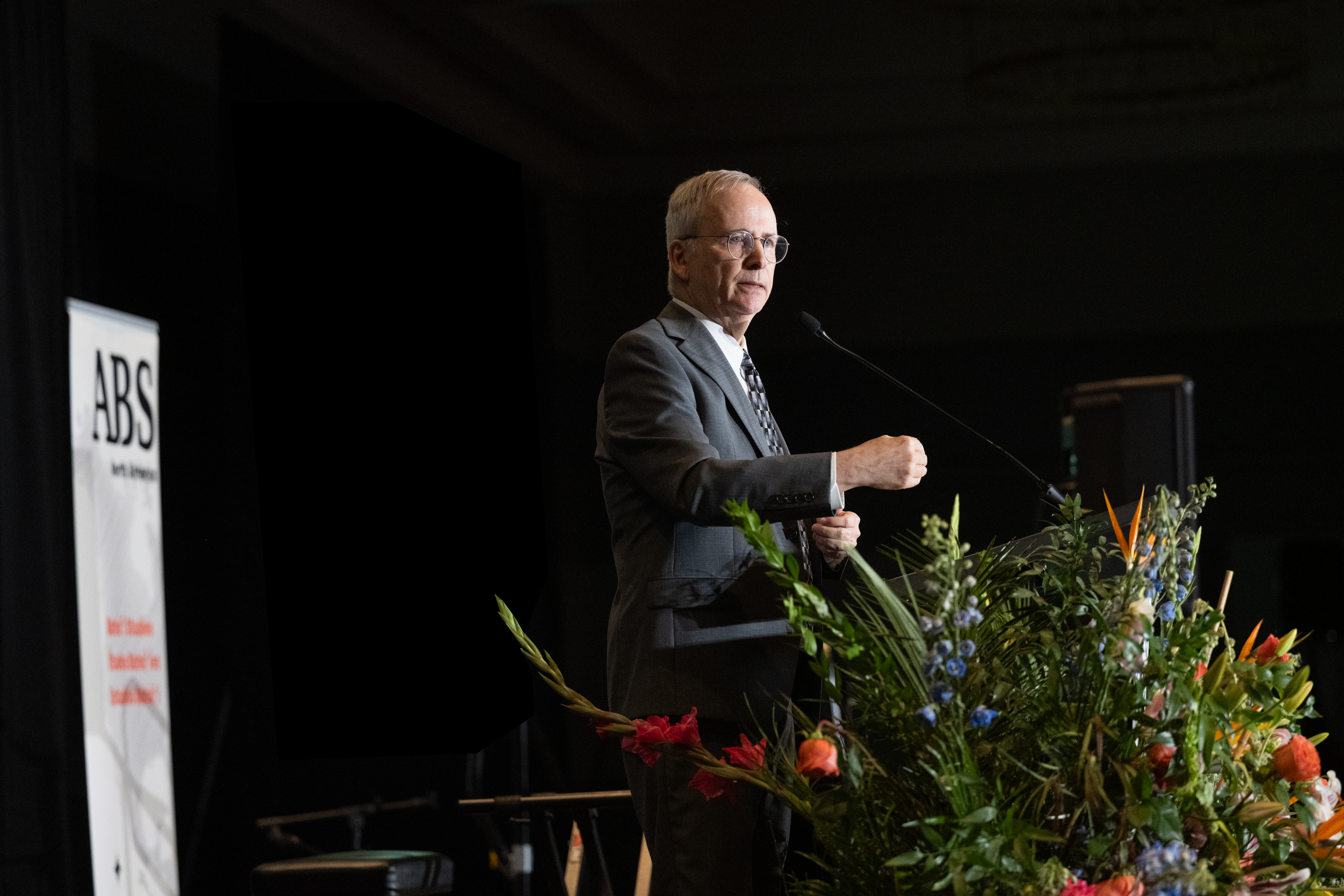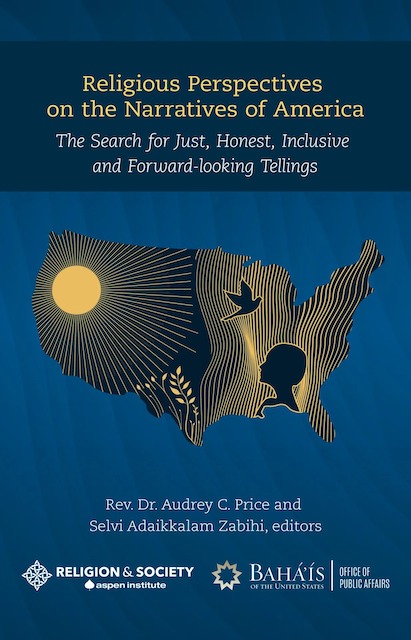
Bahá’í Chair hosts “High Conflict” researcher Amanda Ripley and Israel-Palestine discussion
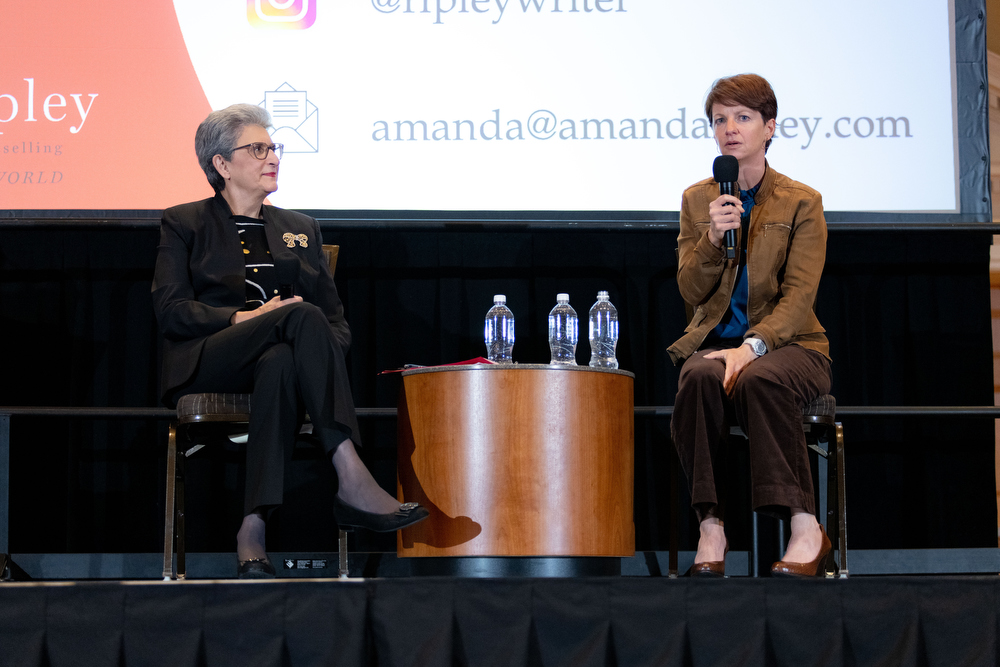
The Bahá’í Chair for World Peace at the University of Maryland continued throughout 2023 to advance discourse on global peace through a diverse set of speakers and events. The Chair’s discussions, seminars, and publications sought to examine the complex processes and possibilities of world peace.
An endowed academic program, the Bahá’í Chair promotes a vision of world peace through its ongoing research and publications. The Chair examines how the meanings of peace have changed over time, expanding to more than the simple absence of war.
Instead, peace now concerns debates about human nature, the need for successful global governance, the persistence of gender inequality, the stain of racism and prejudice, and the degradation of the environment. The Bahá’í Chair seeks ways to understand these five challenges and explore approaches to learning about them so as to build a more peaceful world.
Hoda Mahmoudi, the Chair since 2012, seeks to “provide a platform for the solutions to the problems of peace. Our approach is process-oriented,” she notes, “inclusive of humanity as a whole, and draws insights from our shared human values—those ethical and moral realities we all share. We believe that these shared values provide the foundation for cooperation and collaboration. We are firmly devoted to building such a foundation.”
Mahmoudi and the program’s faculty are committed to educating the community about the concept of world peace and working to create a path that leads to a more peaceful world.
High Conflict
On October 19, 2023, the Chair held its annual lecture. This year featured noted journalist and New York Times bestselling writer Amanda Ripley, Co-Host of the Slate podcast How-To, and author of High Conflict: Why We Get Trapped and How We Get Out and The Unthinkable. Members from the University of Maryland community, the general public, and the Chair’s international advisory board attended the event in person and online.
In her talk, “Breaking the Spell of High Conflict”, Amanda Ripley described her research into “high conflict.” Through her years of detailed discussions with conflict survivors all over the world, including four years with a California politician, a former gang leader from Chicago, and a divided New York City synagogue, Ripley discussed high conflict, its causes, and its solutions.
In a world of constant conflict on both large and small scales, Ripley discussed best practices for getting out of deep disagreements. She described high conflict as the point at which one sorts the world into black and white, good and evil, us versus them. The consequences of this mentality are far-reaching and bring suffering to all involved parties. But Ripley’s research also reveals that conflict and anger are an integral part of human interaction and can even be healthy when properly managed. She argues that individuals and communities must resist false binaries, abstain from forced humiliation, and expel ‘conflict entrepreneurs’ in order to exit damaging situations.
In response to audience questions, Ripley described how her research has impacted her approach to daily life. She discussed a technique called ‘looping’ – a form of active listening where one listens to another’s argument and then repeats back its most important themes. “That has been huge for me and the best place to practice it is with roommates, your friends, your Uber drivers, or your kids,” she said. “What you don’t want to do is bust it out in a real hot conflict for the first time… get it to muscle memory level so you can use it under stress.”
Amanda Ripley’s research, anecdotes, and insights reveal a path toward healthier, more constructive conflict resolution. Her discussion at the Bahá’í Chair’s Annual Lecture reveals how her profoundly optimistic work enables us to ‘break the spell’ of high conflict and build a world where differences are celebrated, dialogue is productive, and unity prevails over division.
Global Peace and Security
On November 6, 2023, a book discussion was held on the edited volume Fundamental Challenges to Global Peace and Security: The Future of Humanity. The online event featured Editors Hoda Mahmoudi and Kate Seaman, Assistant Director of The Bahá’í Chair, and contributors Simon Dalby, Professor Emeritus at Wilfrid Laurier University and Fellow at the Balsillie School of International Affairs, and Charlotte Ku, Professor of Law and Director, Global Programs at the Texas A&M University School of Law.
This discussion explored the current challenges and proposed strategies in the field of global peace and security. Dalby and Ku acknowledged that “actions actually now carry consequences and consequences at a much more rapid rate than we have been accustomed to understanding” – a situation which requires more complex solutions than those currently offered by existing institutions. Dialogue is required between institutions when creating structured responses to global crises like climate change, and a focus should be placed on developing cohesive approaches to all humanity-impacting challenges.
Israel-Palestine Conflict
On November 16, 2023 the Chair held an online discussion, “Academic Discourse & Dialogue: The Israel-Palestine Crisis.” Bernard Avishai and Ezzedine Fishere are Dartmouth professors who co-teach a class about the politics of Israel and Palestine. This event featured a discussion on how conflicts such as the current one in Israel/Palestine should be handled by campus communities. The professors emphasized the need for a different approach to the conflict by focusing on deeper, more educated understandings of the conflict and its long history. They also encouraged a healthy, constructive, and ongoing dialogue that aims to build a supportive community.
Avishai and Fishere understand the shock and upset the Israel-Palestine conflict has brought to communities and campuses throughout the United States. Fishere says that “We are hired to teach, we’re not hired to advocate… our job is to show them how they can build an argument, unpack discourses, identify biases, find out, expand, and question other perspectives.” When speaking about universities’ obligations, Avishai noted that “there’s an obvious line to draw… institutions that base themselves on the principle of tolerance are not required to tolerate intolerant people.” Healthy and constructive dialogue is necessary to prevent polarization and should be supported by universities and professors to help foster a safe community.
New Publications
In 2023, the Bahá’í Chair for World Peace published a volume edited by Hoda Mahmoudi, Jane L. Parpart, and Kate Seaman entitled, Women and Inequality in a Changing World: Exploring New Paradigms for Peace.” The volume, published by Rutledge, explores the obstacles women continue to face to their equal participation in all areas of daily life—political, social, and economic—which persist despite the growth in the education of girls, large-scale social movements, and political waves. The book is available free online. In 2023, Visiting Research Professor, Dr. Tiffani Betts Razavi, published three new articles.
- Tiffani Betts Razavi & Hoda Mahmoudi, “A Bahá’í concept of peace as a resource for peace education: Case study of ‘Problem of Prejudice.” Journal of Peace Studies, 2022.
- Tiffani Betts Razavi & Hoda Mahmoudi, “What can be learned from looking for gender differences in peace education data? Lessons from a Bahá’í-inspired undergraduate course. Journal of Peace Studies, 2023.
- Tiffani Betts Razavi, “Parity, paradigms, and possibilities: a constructive approach to advancing women’s equality.” SN Social Sciences, 2023.


